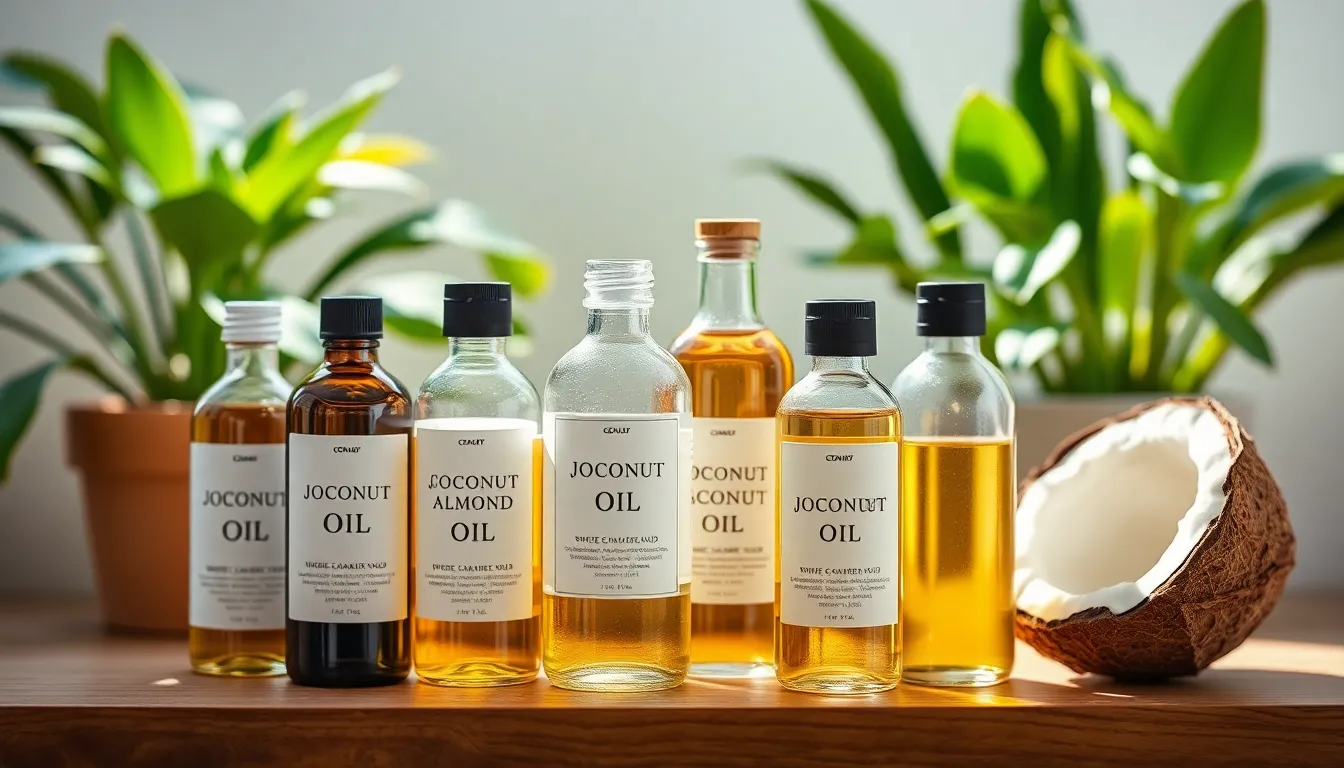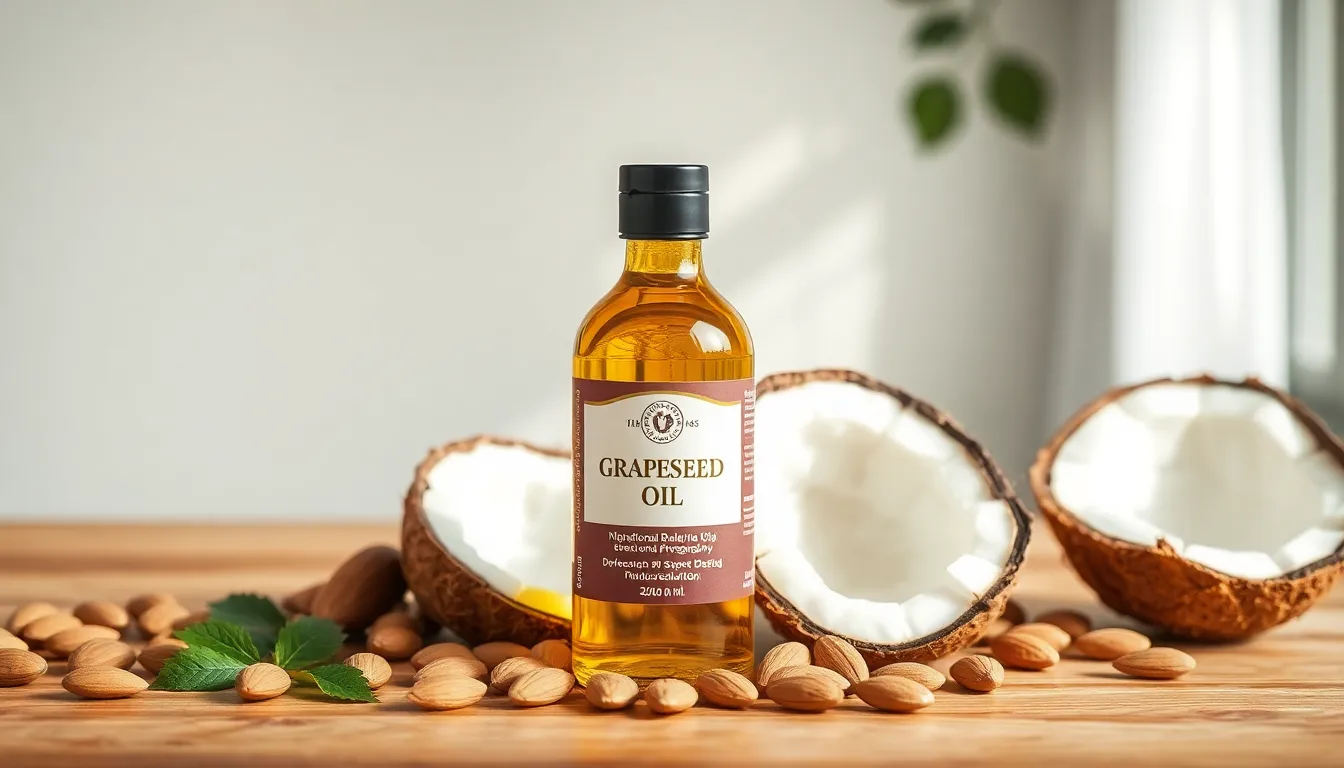Key Takeaways
- Carrier oils are essential, plant-derived bases used to safely dilute and apply essential oils in aromatherapy, skincare, and cosmetics.
- Popular carrier oils like sweet almond, jojoba, coconut, and grapeseed each offer unique benefits, such as moisturising, rapid absorption, and suitability for various skin types.
- Choosing the right carrier oil depends on individual skin needs, absorption rates, fatty acid profiles, and potential allergies; always consider the product’s intended use.
- Proper storage, clear labelling, and equipment sanitation support the safety and longevity of carrier oils, particularly in cosmetic manufacturing.
- Patch testing and the correct dilution ratios are vital for safe topical use, reducing the risk of irritation or allergic reactions.
- Trusted bulk suppliers, such as Range Products, ensure high-quality carrier oils backed by traceable sourcing, certificates of analysis, and independent testing.
Carrier oils are plant-derived base oils essential for safely diluting essential oils in aromatherapy, skincare, and cosmetics manufacturing. Popular varieties including sweet almond, jojoba, coconut, and grapeseed each offer distinct benefits such as moisturising properties, rapid absorption rates, and compatibility with different skin types. Trusted bulk suppliers like Range Products ensure high-quality carrier oils backed by certificates of analysis, independent testing, and traceable sourcing to support consistent product formulations.
What Are Carrier Oils?
Carrier oils are plant-derived base oils used to dilute essential oils for safe topical and cosmetic application. Sourced from seeds, nuts, or kernels—for example, sweet almond, jojoba, and coconut—they remain stable at room temperature and don’t evaporate like essential oils.
Range Products in Welshpool, Western Australia supplies bulk wholesale carrier oils subject to strict quality checks. Suppliers source raw materials globally, using processes like cold-press extraction for maximum integrity. Independent testing, including Certificates of Analysis, confirms each batch meets specifications for use in aromatherapy, cosmetics, and personal care manufacturing.
Professional buyers choose carrier oils for their neutral scent, skin compatibility, and fatty acid profile. Small enterprises and large manufacturers use them as functional bases in massage oils, balms, and serums. Reliable supply and precise documentation support compliance and product consistency for businesses working with carrier oils from distributors like Range Products.
Popular Types Of Carrier Oils

Carrier oils support essential oils in aromatherapy, skincare, and cosmetics. Each type contains unique fatty acid profiles, absorption rates, and application benefits, making selection vital for tailored formulations.
Sweet Almond Oil
Sweet almond oil contains high levels of oleic and linoleic acids, making it suitable for moisturising and softening skin. Professional formulators select this oil for massage blends, creams, and hair serums due to its mild scent and smooth texture. It absorbs moderately, leaving skin feeling nourished but not greasy. Range Products sources sweet almond oil from trusted processors, with batch certification and clear provenance supporting quality assurance for bulk and wholesale needs. In manufacturing, stability and neutral aroma make sweet almond oil a frequent base for aromatherapy and baby products, with typical usage levels from 10–100% depending on the application.
Jojoba Oil
Jojoba oil, technically a liquid wax, closely matches the natural oils found in human skin. This similarity ensures rapid absorption and minimal residue, making jojoba oil preferred for facial serums, balms, and scalp treatments. Its shelf stability and resistance to rancidity increase appeal for both small enterprise and industrial production. Range Products provides jojoba oil meeting regulatory documentation and third-party analysis, ready for cosmetic and topical ingredient supply. Manufacturers combine jojoba oil with essential oils to improve skin acceptance and product consistency, particularly where sensitive skin or preservative-free claims are required.
Coconut Oil
Coconut oil delivers a high concentration of saturated fatty acids, resulting in solid or semi-solid texture at room temperature. Refined coconut oil, free from scent, offers long shelf life and enhances skin barrier function in cosmetic manufacturing. Fractionated coconut oil remains liquid and is used in massage blends and lightweight skin elixirs. Range Products supplies both types, consistent in purity and quality, with documentation including certificates of analysis and allergen statements. Bulk coconut oil forms the core ingredient of artisanal soaps, body butters, and hair conditioners where emollient finish and compatibility with essential oils are required.
Grapeseed Oil
Grapeseed oil provides a light texture and rapid absorption, making it ideal for large scale and retail skin and hair products where a non-comedogenic base is essential. With high linoleic acid content, grapeseed oil addresses greasy skin and boosts fast absorption. Professional buyers opt for this oil in massage oils and facial blends where clients require a trace-free finish. Range Products secures grapeseed oil in bulk wholesale quantities, validated by origin certificates and batch testing. Common in fast-moving consumer goods, grapeseed oil remains stable, neutral in aroma, and compatible with most essential oils used in aromatherapy and skincare.
Benefits Of Using Carrier Oils

Carrier oils support essential oils by diluting them for safe topical use, reducing the risk of skin irritation. Sweet almond and jojoba oils, for example, provide a protective barrier that locks in moisture and softens skin without causing congestion. Lightweight options like grapeseed oil absorb quickly, supporting formulations for facial or hair serums that require a non-greasy finish.
Nutrient content in carrier oils, such as vitamin E in sunflower or fatty acids in coconut oil, directly nourishes skin and hair, supporting hydration, elasticity, and repair. Consistent use in massage blends or skincare can boost the delivery of active compounds while prolonging scent, especially when mixed with essential oils.
Carrier oils contribute to product stability, as their natural antioxidant content can extend shelf life. Range Products in Welshpool, Western Australia, supplies bulk wholesale carrier oils with traceable sources and complete certificates of analysis, supporting compliance and repeatable product quality in manufacturing. Quality assurance at every stage—from sourcing to independent lab testing—enables small brands and large enterprises to rely on consistent, safe ingredients for aromatherapy, bath, and home products.
How To Choose The Right Carrier Oil
Selecting the right carrier oil depends on skin compatibility, absorption rate, and end use. Oils like sweet almond and grapeseed suit sensitive or dry skin due to their softening and light textures. Peanut or coconut oils trigger reactions in nut-allergic individuals, so alternative options like sunflower or jojoba prove safer. Rapid absorption benefits facial serums, while richer oils provide longer-lasting moisture for massage blends.
Understanding the fatty acid profile directly informs application. Oils high in linoleic acid, such as grapeseed or sunflower, support acne-prone or oily skin, while oleic acid-rich oils like olive or avocado offer intensive nourishment for mature or dry skin types. Assessing viscosity ensures suitability—for example, jojoba oil matches natural sebum and works well in hair serum production.
Shelf life and storage stability affect product performance and compliance. Fractionated coconut, with extended oxidative stability, meets the requirements for high-volume cosmetics manufacturing. Range Products provides bulk wholesale supplies with full traceability and certificates of analysis, confirming accurate fatty acid profiles, absence of contaminants, and reliable batch consistency. These documents support compliance across aromatherapy, cosmetic, and home care manufacturing. Range Products sources ingredients globally, then independently tests oils for freshness and purity at their Welshpool, WA location, ensuring that procurement decisions result in safe, quality-assured products.
How To Use Carrier Oils Safely
Patch tests confirm skin compatibility with carrier oils before large-area use. Apply 1-2 drops of diluted carrier oil to the inner forearm, checking after 24 hours for any redness, itching, or adverse reactions.
Dilution ratios control essential oil concentration in blends. Mix essential oils with carrier oils at 1-2% dilution for adults (1–2 drops per 5ml carrier oil). For children, elderly, and sensitive skin, use 0.5–1% dilution.
Storage affects the stability of carrier oils. Keep oils in dark, airtight containers at 15–25°C, away from sunlight, air, and moisture. Oils with short shelf lives (flaxseed, 6–12 months) need faster use, while stable types (jojoba, coconut, 2+ years) resist oxidation longer.
Labelling prevents accidental misuse in production settings. Clearly mark containers with type, batch number, and expiry date. Range Products supplies bulk wholesale carrier oils with traceable batch codes and certificates of analysis, supporting compliance and client transparency.
Sanitation equipment avoids product contamination during blending. Use clean, sterile utensils and workspaces, especially for skincare and cosmetic production.
Allergy risks decrease when selecting nut-free carrier oils (e.g. sunflower, grapeseed) for sensitive users or allergy-prone workplaces. Range Products offers allergen-safe options and independent lab verification for ingredient purity.
| Method | Best Practice / Recommendation |
|---|---|
| Patch Testing | Apply 1–2 drops to skin, wait 24 hours for reaction |
| Dilution Ratios | 1–2% for adults, 0.5–1% for sensitive users |
| Storage | Airtight, dark containers at 15–25°C; use unstable oils faster |
| Labelling | Include type, batch, expiry; use certificate of analysis for documentation |
| Equipment Sanitation | Clean, sterile tools and surfaces |
| Allergy Precautions | Choose nut-free oils when necessary; use products with allergen reporting |
Conclusion
Carrier oils have become a cornerstone in both personal care routines and large-scale manufacturing thanks to their versatility and safety. Whether someone is seeking gentle hydration for sensitive skin or a lightweight base for high-performance serums there’s an option to suit every need.
With a range of benefits and careful sourcing from reputable suppliers users can feel confident about the quality and consistency of their chosen oils. By understanding their properties and best practices for use anyone can open the full potential of carrier oils in their wellness or business journey.
Frequently Asked Questions
What are carrier oils?
Carrier oils are plant-based oils extracted from seeds, nuts, or kernels. They are used to dilute essential oils for safe topical application in skincare and aromatherapy, as essential oils are too concentrated to use alone.
Why should I use carrier oils with essential oils?
Carrier oils dilute essential oils, making them safe for skin contact and reducing the risk of irritation or sensitivity. They also help essential oils spread evenly over the skin and support better absorption.
Which carrier oils are best for dry skin?
Sweet almond, jojoba, and sunflower oils are excellent for dry skin due to their high moisturising properties and ability to lock in hydration without clogging pores.
Are carrier oils suitable for sensitive skin?
Yes, oils like grapeseed and jojoba are typically gentle and suitable for sensitive skin. Those with nut allergies should consider nut-free options like sunflower or grapeseed oil.
What is the shelf life of carrier oils?
Shelf life varies depending on the oil, but most carrier oils last between 6 months and 2 years if stored in a cool, dark place away from sunlight and heat.
Can I use carrier oils on my hair?
Yes, carrier oils such as coconut, jojoba, and grapeseed oil are commonly used to nourish hair, improve shine, reduce frizz, and moisturise the scalp.
How do I choose the right carrier oil for my needs?
Consider your skin type, intended use, absorption rate, and any allergies. For example, grapeseed oil is light and good for facial serums, while coconut oil offers deep hydration for hair and body.
What makes carrier oils essential for cosmetic manufacturing?
Carrier oils provide a stable, neutral base that complements essential oils and active ingredients. They ensure skin compatibility, enhance product texture, and help deliver nutrients and actives effectively in balms, serums, and massage oils.
Can carrier oils help with acne-prone skin?
Yes, oils high in linoleic acid, like grapeseed oil, may support acne-prone skin by helping regulate sebum production and providing lightweight hydration.
How should carrier oils be stored for best results?
Store carrier oils in airtight containers, away from direct sunlight and heat, to prevent oxidation and preserve freshness. For large quantities, ensure proper labelling and documentation for traceability.
Are carrier oils safe for use during pregnancy?
Generally, carrier oils like coconut, sunflower, and jojoba are safe, but always conduct a patch test and consult your healthcare provider, especially if blending with essential oils.
What are the benefits of buying carrier oils in bulk from suppliers like Range Products?
Bulk suppliers ensure consistent quality, global sourcing, and full documentation, which is vital for large-scale manufacturing. They offer traceable, tested oils with certificates of analysis for compliance and product reliability.
